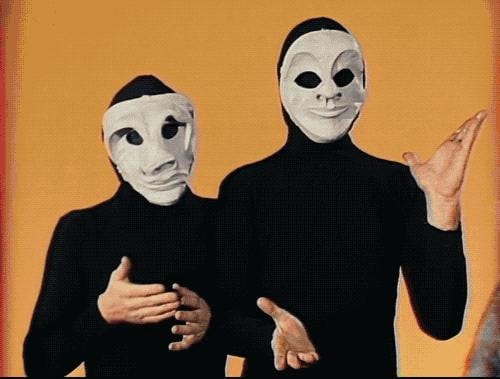The Hidden Curriculum of Success, Part 1: Writing to Understand
How scholarship application essays can lead to a meaningful life, but often don't.
What follows is the first in a three-part series on the personal statement—not as a writing task, but as a form of ethical reflection. Whether written for a scholarship, fellowship, or college application, the personal statement sits at the uneasy intersection of identity, aspiration, and performance. It asks you to explain who you are and where you’re going—but often within an institutional frame more concerned with polish than process.
And yet, when taken seriously, this short, high-stakes essay can do something far more meaningful. It can become a site of inquiry. A space for clarity. A tool for ethical self-authorship. In a culture that rewards performance over reflection, learning to write honestly might be one of the most radical (and clarifying) acts we can undertake. —KM
There’s a saying—usually attributed to Lao Tzu—that I’ve seen on motivational posters:
“Watch your thoughts, they become words. Watch your words, they become actions. Watch your actions, they become habits…”
The chain ends, as these things often do, with character and destiny.
Whether or not you buy the metaphysics (or find it “motivational”), there’s something worth exploring here: the way we narrate our lives—especially to ourselves—shapes what we see, how we act, and who we become.
This storytelling impulse shows up most clearly in moments of transition. When we leave one path and begin searching for the next, we reach for language to make sense of where we’ve been and where we’re going. A journal entry, a pros and cons list, a manifesto, even a cringey social media post—each is an attempt to draft a new version of the self.
The words are awkward, vulnerable, searching. But that’s the point. We revise while we write. We discover what we mean by saying it aloud. And often, we’re hoping for an audience—not just someone to read it, but someone to understand.
Setting the Stakes
Now imagine that the audience gets to decide the next chapter.
Every year, thousands of young people apply for ultra-prestigious fellowships—Rhodes, Marshall, Truman, Fulbright—hoping to study, serve, or lead on a global stage. These awards aren’t just about funding or opportunity; they’re loaded with cultural weight. They imply distinction, promise, leadership. The Rhodes Scholarship is the most well-known of these, having been around since 1902. Over the past century, winners have gone on to become presidents, senators, CEOs, Olympians—even reality show champions. When someone wins, it’s front-page news—well, somewhere. And behind each of these wins is a surprisingly intimate, surprisingly difficult piece of writing: the personal statement.
In most of these applications, the personal statement is the centerpiece. On the surface, it’s just an essay—roughly a thousand words about yourself, your goals, and your motivations. But what it asks of you is far from simple:
Tell us who you are.
What you believe.
What you want.
And why it matters.
It’s a writing prompt, yes—but it’s also a character test, a values inquiry, and a vision statement all rolled into one. And for the past twenty-odd years, helping students navigate that challenge has been my work. I read early drafts, ask annoying questions, challenge logic, call out vagueness, and gently push students to go deeper. Sometimes I watch them break down. More often, I get to watch them break through.
What I’ve learned in that work—not just from the essays, but from the young people who write them—is that these statements are more than a hurdle or an item on a checklist. When approached with honesty, they become something else entirely: a blueprint for writing a meaningful, values-driven life. These essays model what it means to write not just to impress, but to understand. And that shift—from performance to understanding—can change everything.
Most of us will never apply for a Rhodes Scholarship, but we all face moments that demand self-understanding. We all wrestle with how to tell the truth about who we are, what we care about, and where we’re going. That sounds like a simple enough task; after all, the person we spend the most time with is ourselves. But in reality, most of us are driven by unexamined motives. We follow routines, inherit expectations, and keep heading in the same direction simply because it’s familiar. As I explored in my last series, The Shapes of Stories, many of us are following scripts that were never written for us—or that no longer explain us.
The Cult of Performance
We live in an age of relentless performance. At school, at work, online—everyone is always “on.” We curate profiles, rehearse talking points, chase credentials, and craft careful, satisfactory narratives about who we are and where we’re going. Beneath it all hums a quiet but constant pressure: Be exceptional. Be impressive. Be a leader.
This pressure is especially acute for young people. College applications, internships, scholarships—all reward what Susan Cain, author and founder of The Quiet Revolution, a social movement that promotes the power of thoughtful reflection, calls “the glorification of leadership skills,” a cultural fixation that often favors dominance over depth, spotlight over substance. Students are coached to run clubs, launch initiatives, and stack their résumés with titles—not always out of conviction, but out of necessity. As Cain observes, “no activity or accomplishment meant squat unless it was somehow connected to leadership.” Even the way we teach writing reflects this ethos. As John Maguire, writing instructor and founder of readiblewriting.com puts it, most composition courses now emphasize “rhetorical strategies, research, awareness of audience, youth civic activism—everything except the production of clear sentences.” We are teaching students how to perform, not how to think.
But performance isn’t just about achievements—it’s also about story. As I explored in The Shapes of Stories, our culture tends to reward a particular narrative arc: the solitary protagonist, the upward struggle, the triumphant resolution. It’s the “overcoming the odds” story, the “hero’s journey” rebranded for résumés. And while that structure has its place, it can flatten the real work of becoming. Cultural critic Roland Barthes once described myth as a story that erases its own construction—turning ideology into instinct. (His example was a soldier saluting the French flag: the image doesn’t just represent patriotism—it becomes patriotism.) In the same way, the adversity-to-triumph arc in personal statements becomes a kind of myth: a narrative so familiar, so rewarded, that we no longer see it as a choice. It feels like the only story worth telling.
That loss is especially visible in personal statements. When students feel pressured to craft a story of success, they often erase the parts of their experience that don’t fit the arc—moments of uncertainty, quiet transformation, or shared struggle. The result is a polished narrative that sounds impressive but feels hollow. Not because students lack depth, but because they’ve been taught to perform clarity instead of pursuing it.
A Rhetoric of Understanding
So what’s the alternative?
It starts by rejecting the idea that a personal statement is a sales pitch. What if, instead of trying to persuade someone of our worth, we used the essay to figure out what we actually believe? What if we treated it less like a performance—and more like a practice?
This is the heart of what I call a “rhetoric of understanding.” Political theorist Hannah Arendt described understanding as a “never-ending activity” through which we come to terms with the world—not by mastering it, but by engaging it. In that spirit, the goal of reflective writing isn’t to win an argument, it’s to live more consciously within one, and t isn’t about crafting the strongest case, it’s about following your own questions until they lead somewhere honest. A rhetoric of understanding trades certainty for sincerity and values process over polish.
This shift can be deeply disorienting—especially for high-achieving students who’ve been trained to optimize every sentence for strategic effect. They’ve learned how to write to impress. Writing to reflect feels riskier. Vulnerable. Sometimes even pointless. But as researcher and author Ulrich Boser reminds us, “learning is a learned behavior”—and it often begins not with knowing, but with stopping long enough to notice what you don’t know. The essays that stay with us—the ones that move readers—almost never arrive fully formed. They emerge from a process of uncertainty, inquiry, and deliberate discomfort. They sound less like TED Talks and more like journal entries written on the edge of something important.
In my advising work, I try to help students reframe the task. Instead of asking, What do they want to hear?, I ask:
What are you still trying to figure out?
What has changed in the way you see the world—and why?
What truth have you come to that you didn’t expect?
That’s where we begin. Not with a brand, but with an honest question.
This difference—between writing to perform and writing to understand—shows up everywhere in how students approach the page. The contrast isn’t just stylistic; it’s philosophical. It changes what questions you ask, what truths you reveal, and what kind of self you construct in the process.

Performance writing tends to reach outward. It tries to impress, to sound polished and controlled, to offer the right answers in the right order. It smooths out tension, rounds off uncertainty, and wraps experience in a bow. It begins with what the writer thinks the reader wants. Understanding-driven writing turns inward. It begins with what the writer honestly believes—even if it’s messy, unresolved, still in motion. It follows questions instead of conclusions, lingers in complexity, and resists the pressure to tie everything up. One mode tries to win the reader over. The other tries to see something more clearly.
Ask not: “How can I prove I’m worthy?”
Ask instead: “What do I now see more clearly—and what responsibilities follow?”
And when students make that shift—when they write not to prove, but to understand—three deeper qualities begin to emerge. Not tactics or tropes, but habits of attention: curiosity, authenticity, and insight.
Performance demands answers. Curiosity begins with questions. While the polished applicant tells a linear story with a clear takeaway, the curious writer lingers in the unresolved. They notice tension, follow it, and resist the urge to wrap everything up too neatly. The strongest personal statements often emerge from a writer’s attempt to understand a shift, a contradiction, or a mystery in their own life.
Where performance seeks to impress, authenticity dares to be honest—even when it’s complicated. It means refusing to shape-shift into who you think the reader wants you to be. Authenticity might sound like: “I used to think X, but now I’m not so sure.” Or: “This experience didn’t give me clarity—it gave me better questions.” It resists the temptation to oversimplify, because it knows that meaning is often found in the middle of uncertainty.
In a performance culture, insight often gets flattened into slogans. But true insight rarely arrives on demand—it surprises even the writer. It emerges not from polish, but from uncertainty. From sitting with a question long enough that something deeper starts to take shape. Insight gives the essay its movement. It doesn’t tie everything up—it ties things together.
The Race You Can’t Win
Every applicant knows the feeling of being behind the curve, of running a race that feels like it already started. Even before you write a word, you’re comparing yourself—your résumé, your story, your voice—to everyone else’s. You go online and read the impressive 100-word biographies and think, I don’t belong here.
That mindset turns the writing process into a competition: a race where someone is always a step ahead. Someone else always has more awards, a more impressive backstory, a cleaner narrative arc. You sprint to catch up, clipping your story into the shapes you think the judges want, to match pace with the apparent frontrunners.
But the finish line keeps moving, and somewhere along the way, you forget what race you were running in the first place.
The pressure to keep up, to perform, to win a race you didn’t choose—that isn’t just hypothetical. Consider the Operation Varsity Blues scandal, where wealthy families desperate to win the admissions race paid to manufacture credentials—fake athletic profiles, doctored test scores, rehearsed personas—all designed to produce the illusion of merit. It was a grotesque performance, but one tailored perfectly to what the system rewarded.
Then there’s the case of Mackenzie Fierceton, a University of Pennsylvania student whose Rhodes candidacy unraveled after questions were raised about how she described her background. Fierceton identified as a first-generation, low-income abuse survivor—an identity that, some believed, had become its own kind of narrative currency. She was accused of exaggerating aspects of her story. She ultimately withdrew from the scholarship and later reached a legal settlement with the university. Her case wasn’t a clear-cut fabrication—but it exposed something more subtle and unsettling: the degree to which even authenticity can be scrutinized, packaged, and performed in service of institutional expectations.
In both cases—faking privilege or showcasing pain—the personal statements became less about understanding and more about performance. When success depends on fitting your story into a recognizable script, even truth becomes strategic. And in the race to be chosen, it’s easy to lose sight of what’s real.
Here’s what that pressure does to writing: you stop telling your story and start manufacturing one. You chase the flashy finish line—“I want to change the world,” “I’m a natural leader,” “I overcame X against all odds”—even when those lines distort or override your real questions and doubts. Over time, you lose track of where the performance ends and the person begins. You stop asking what’s true and start asking what will work. And in that shift, something essential gets silenced: the voice that was trying to make sense of who you are, not sell it.
Because real growth doesn’t happen in performance. It happens in listening—to your own voice, your own confusions, your own half-formed convictions. And from that listening (if it’s honest) emerges something deeper than polish or prestige. It becomes the seed of alignment: between your thoughts and your words, your words and your actions, your actions and your values. As bell hooks writes, education at its best is “the practice of freedom”—not the freedom to impress, but the freedom to name, to question, to become. Writing, in this sense, isn’t the end of the race. It’s the start of a pattern.
So if writing to understand is so powerful, why is it so rare? Why do so many students(and so many of the rest of us) default to performance, even when we long to be honest?
That’s the question we’ll take up in Part II. Because the problem isn’t just individual: it’s cultural, it’s structural, and if we want to reclaim writing as a practice of self-authorship, we first have to understand what untrained it in the first place.






I took a break from drafting research proposals to read this, and it was a nice reminder for me to slow down and reflect on what I'm actually curious about, instead of trying to jump straight to producing a polished proposal that could be interesting to the people who will be evaluating it. It also reminded me of my own process writing personal statements with ONSA, and thinking back, it was months of drafting and feeling paralyzed because I realized that I didn't really know who I was or what I cared about (I mean, I'm still figuring that out). But anyways, just thinking about that personal statement process, was helpful in reminding me that things take time, and that even with a research proposal, I shouldn't expect it to come together so fast.